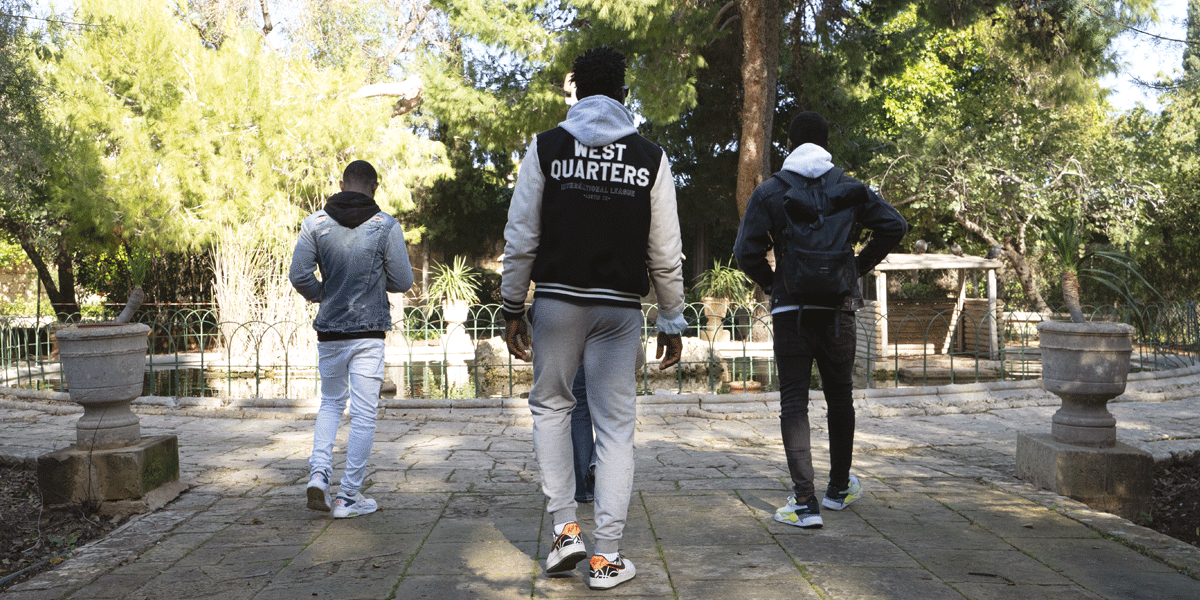


Africa is not poor but impoverished
Aminata Traoré, in conversation with Jelka Kretzschmar
Coordinator of Forum pour un Autre Mali
J: Since 2006, together with the Initiative of the Centre Amadou Hampaté BA (CAHBA), the Forum pour un Autre Mali (FORAM) organises the conference Migrances in Bamako, Mali. Every year, the conference brings together intellectuals, political, social and cultural actors committed to defending the rights of migrants who are forced to travel and live clandestinely. The El Hiblu 3 shared their story during the last Migrances conference, which took place from 16-18 December 2021. What was the focus and how did people react to the story of the El Hiblu 3?
A: Why should manhunts and house arrest be the lot of some, while others, the very ones who practice xenophobic and repressive policies, take the world by storm? This is the question we keep asking in the framework of the Migrances conference every year since 2006.
The 2021 edition of Migrances took place in the particular national context of Mali, marked by a worsening security situation and a tug of war between the ‘international community’ and the transitional authority born of the coups d’état on 18 August 2020 and 24 May 2021.
The story shared by Abdalla and Kader, two young men from the El Hiblu 3, was very enlightening for the participants. Their situation is a perfect illustration of the criminalisation of migrants and the risks that these young people may have to take due to the tightening of migration policies in Europe.
Can you tell us a bit about the Forum pour un Autre Mali? When and why was it founded, what does it do?
The Forum for Another Mali (FORAM) is the national branch of the African Social Forum (ASF), which itself is an extension of the World Social Forum (WSF) started in Porto Alegre, Brazil, in 2001. FORAM aims to continue and deepen the debate on neo-liberal globalisation and to initiate activities in different areas that are alternatives and in line with people’s needs.
When, on 29 September and 6 October 2005, hundreds of African migrants climbed the barbed wire fences of the Spanish enclaves of Ceuta and Melilla in Morocco, it was in response to their lack of mobility, as well as a call for help. At least four people were shot dead, dozens of others were injured but, because of a lack of interlocutors and genuine dialogue, they were not heard: neither by Africa, where they are deprived of decent jobs and income, nor by Europe, where they are denied legal entry.
On the contrary, in fact, these dramatic events in Ceuta and Melilla were used to justify the tightening of Europe’s migration policies to the point of criminalising migrants, who are forced to travel and live clandestinely.
After these events, we started the initiative FORAM and the respective conference Migrances to establish commemoration, education and regular discussion about the discrimination of migrants.
How does the EU border regime and the externalisation of EU borders affect the movement of people and infrastructure in the Sahel and Sub-Saharan Africa? Who benefits from militarisation and border controls? What is needed for better transnational networking between North Africa and Europe?
We understand the externalisation of Europe’s borders as comparable to what they call ‘jihadism’. There is an externalisation of the military solution and a subcontracting of police violence. The migration issue is included by the far right – which is on the rise – in the same register as terrorism. The tracking down and repression, whether by police or military, is outsourced to states bankrupted by structural adjustment programmes (SAPs) and cruelly dependent on foreign aid.
We must ourselves become aware of the difficulties faced by young people and make our voices heard in order to deconstruct the dominant discourse which consists of saying that it is only poverty and corruption which cause young people to depart and some to be recruited by jihadist leaders: because Africa is not poor, but impoverished. If there is poverty, it is the result of globalised and financial capitalism, which is a source of inequality and corruption throughout the world.
There is a willingness to plunder Africa further in an attempt to solve the systemic crises of capitalism in the Occident. It is the shareholders of the multinationals who benefit from this conduct of world affairs. So, unless we look at the problem from the perspective of the global expansion of this odious system of plundering natural resources and exploiting human beings, there will be no way out. This systemic approach is at the heart of what we do here at FORAM and the Migrances conferences’.
A radical paradigm shift in development and global partnership is the only answer to this question. Unfortunately, this is only being paid lip service as more money is spent on arms purchases. Africans should be able to live with dignity and decency here, as well as being afforded freedom of movement.